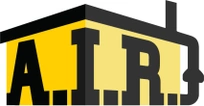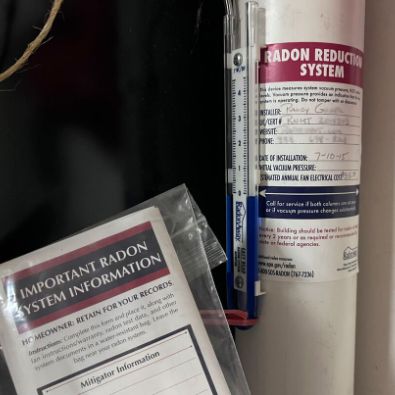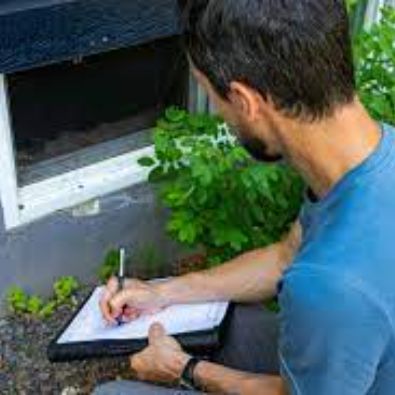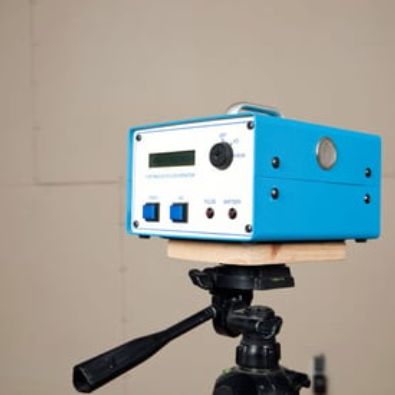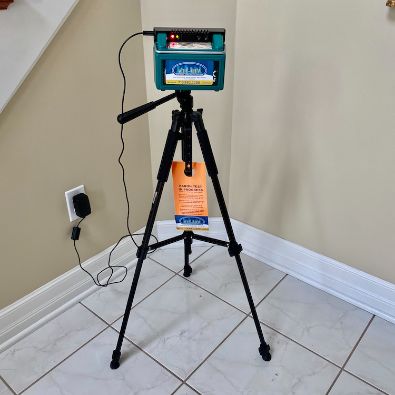Radon Testing & Inspection
Call Now! Schedule Your Radon Testing & Inspection 319-231-3991
Radon is a naturally occurring, odorless, colorless, and tasteless gas that can be found in the soil and rocks beneath your home. It is a known carcinogen and can cause serious health problems if it is not properly tested and inspected. In Knoxville, Iowa, radon testing and inspection is an important part of home ownership.
Radon is the second leading cause of lung cancer in the United States, and it is estimated that one in 15 homes in the United States has elevated levels of radon. Radon is found in all 50 states, and Iowa is no exception. In Knoxville, Iowa, radon levels can be higher than the national average, making it even more important to have your home tested and inspected for radon.
At All Iowa Radon, we understand the importance of radon testing and inspection in Knoxville, Iowa. We offer comprehensive radon testing and inspection services to ensure that your home is safe and free from elevated levels of radon. Our team of experienced professionals will come to your home and perform a thorough inspection to identify any potential radon issues. We will then provide you with a detailed report of our findings and recommendations for remediation if necessary.
At All Iowa Radon, we take the safety of your home seriously. We understand the importance of radon testing and inspection in Knoxville, Iowa, and we are committed to providing you with the best service possible. If you have any questions or concerns about radon testing and inspection in Knoxville, Iowa, please don’t hesitate to contact us. We look forward to helping you keep your home safe and free from elevated levels of radon.
Knoxville, Iowa is a small city located in Marion County, Iowa. It is the county seat and has a population of 7,731 people. Knoxville is known for its historic downtown, which is home to many unique shops and restaurants. The city is also home to the National Sprint Car Hall of Fame and Museum, which celebrates the history of sprint car racing. Knoxville is also home to the world's oldest operating roller coaster, the "Jack Rabbit," which has been in operation since 1920.
Knoxville is home to the world's largest Raccoon, which stands at an impressive 20 feet tall. The Raccoon was built in the 1950s and is located in the city's downtown area. Knoxville is also home to the world's largest popcorn ball, which weighs in at over 2,000 pounds. The popcorn ball was created in 2009 and is located in the city's Central Park.
Knoxville is home to the world's oldest operating movie theater, the Marion Theatre. The theater opened in 1914 and is still in operation today. Knoxville is also home to the world's oldest operating drive-in theater, the Starlite Drive-In. The drive-in opened in 1948 and is still in operation today.
Knoxville is home to the world's oldest operating golf course, the Knoxville Golf and Country Club. The golf course opened in 1895 and is still in operation today. Knoxville is also home to the world's oldest operating bowling alley, the Marion Lanes. The bowling alley opened in 1947 and is still in operation today.
Knoxville is home to the world's oldest operating carousel, the Marion Carousel. The carousel opened in 1912 and is still in operation today. Knoxville is also home to the world's oldest operating amusement park, the Marion County Fairgrounds. The amusement park opened in 1891 and is still in operation today.
Knoxville is a unique city with a rich history and many interesting attractions. From the world's oldest operating roller coaster to the world's largest popcorn ball, Knoxville has something for everyone. Whether you're looking for a unique shopping experience or a fun day out, Knoxville has something for everyone.
Local Radon Testing & Inspection Experts Call NOW! 319-231-3991
The History of Radon in Knoxville, Iowa
Radon is a naturally occurring radioactive gas that is found in the soil and rocks of Knoxville, Iowa. It is odorless, colorless, and tasteless, and can be found in both indoor and outdoor air. Radon is the second leading cause of lung cancer in the United States, and it is important to be aware of the levels of radon in your home or workplace.
Radon was first discovered in Knoxville, Iowa in the late 1980s. At that time, the Environmental Protection Agency (EPA) began to monitor the levels of radon in the area. The EPA found that the levels of radon in Knoxville were higher than the national average, and they recommended that homeowners take steps to reduce their exposure to the gas.
Since then, the EPA has continued to monitor the levels of radon in Knoxville, and they have found that the levels have decreased over time. This is likely due to the fact that many homeowners have taken steps to reduce their exposure to the gas, such as sealing cracks and openings in their homes and installing radon mitigation systems. The EPA also recommends that all homeowners in Knoxville test their homes for radon, and if the levels are found to be high, they should take steps to reduce their exposure.
Radon is an important issue in Knoxville, Iowa, and it is important to be aware of the levels of radon in your home or workplace. The EPA recommends that all homeowners in Knoxville test their homes for radon, and if the levels are found to be high, they should take steps to reduce their exposure. By taking these steps, homeowners can help protect themselves and their families from the dangers of radon.
Contact Us For A Free Quote!
Our team of experts is ready to provide you with personalized guidance and deliver exceptional results.
